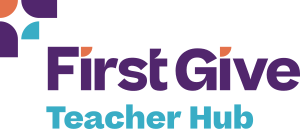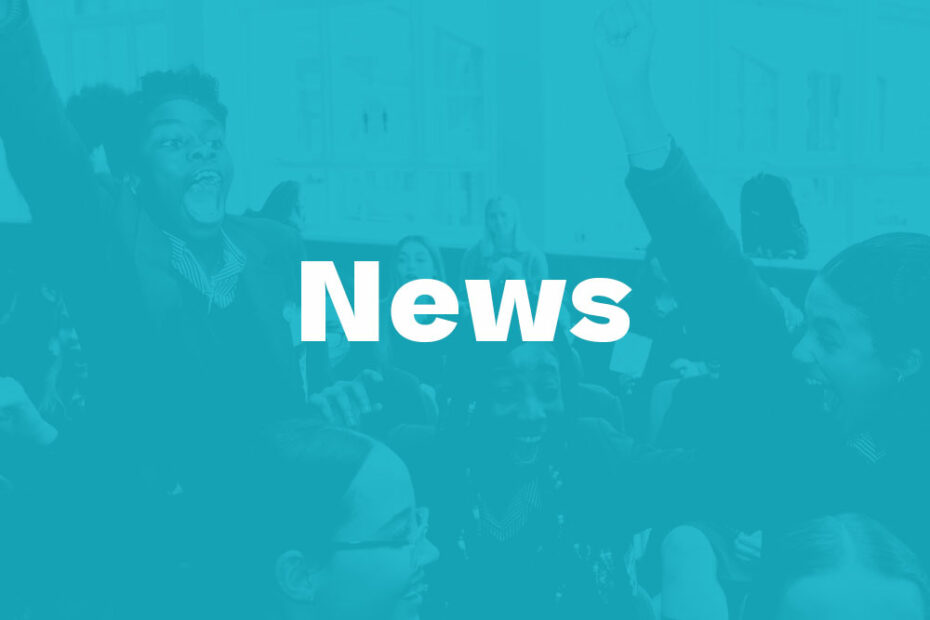First Give is excited to announce a series of changes to our programme, aimed at maximising student engagement and impact. The pandemic was a time of real turbulence in schools, meaning First Give was conscious not to add more change by adapting the programme. Now we have been able to carefully consider the feedback received from schools and teachers, and we are proud to announce a range of enhancements that will shape the First Give experience for the 2023/2024 academic year.
One of the central themes guiding these updates is a more collaborative approach amongst classmates. One of the most common pieces of feedback we receive is some students losing engagement at certain sticking points, for example after lesson 3 and after lesson 8. We believe collective decision-making and whole-class involvement is key to a successful programme for all students. In turn, we have implemented changes to several lessons to foster a greater sense of unity within each classroom. In Lesson 1, students will now collectively decide on a social issue to address going forward, ensuring that everyone’s perspectives and passions are heard and valued. This collaborative approach extends to lesson 8, where students will engage in a discussion on how to integrate elements from each group’s presentations into the presenting teams’ presentation. By minimising the divide between the smaller working groups, there will be a more inclusive environment and reduce the chances of disappointment. Furthermore, an emphasis on the ‘social action team’ allows all students to contribute meaningfully, even if they are not directly involved in the presentation.
Another change based on feedback we have received is to provide students with additional support and scaffolding. If students choose to have a PowerPoint, we have introduced a First Give template PowerPoint for students that need this the most. This resource serves as a guide, offering structure to the groups’ PowerPoint. In addition, we continue to provide extra challenges in the form of ‘Challenge Yourself’ sections for students who are eager to delve deeper and further develop their skills.
The charity meeting, a crucial component of the programme, has undergone significant improvements. Recognising that teachers often went ahead and devoted an entire lesson to this aspect, we have now formally integrated a dedicated lesson plan for the charity meeting. This change not only reduces the overall duration of the programme but also offers more comprehensive support for this crucial interaction. The lesson includes starter and finisher exercises to be used if the meeting is fairly short. Students now have been provided with additional questions for the charity meeting and space to come up with their own, making the experience more engaging for both students and charities. In response to feedback requesting support in contacting class charities, we have made Programme Managers available to provide assistance, ensuring a successful collaboration.
To enhance the overall learning experience, the coursebook has been updated to refine the wording and clarity of instructions, making it more accessible and clearer for students, with certain elements emphasised. For example, we have developed a ‘student-friendly’ version of the judges’ criteria, allowing students to gain a clearer understanding of what is expected in their presentations and what constitutes winning class social action. The social action examples have been updated, too. The lesson plans have also been updated with better instructions, more detail and more fluid timings where possible, to show the flexibility of the lessons and support teachers, based on feedback we have received.
The teacher briefing has now evolved into a comprehensive training session. This interactive and detailed training is specifically designed to address common issues encountered on the programme. The training now focuses on key areas such as successful charity engagement, what is in the judges’ criteria, and encouraging teachers to think in detail about what constitutes successful social action. By focusing on these aspects, we aim to enhance their ability to facilitate an impactful learning experience.
These updates to the First Give programme reflect our commitment to continuous improvement and our dedication to empowering students to make a genuine positive impact in their communities. We value the feedback and insights provided by schools and teachers, and we are grateful for the opportunity to refine our programme based on your input. We look forward to witnessing the positive change as a result of these changes!

